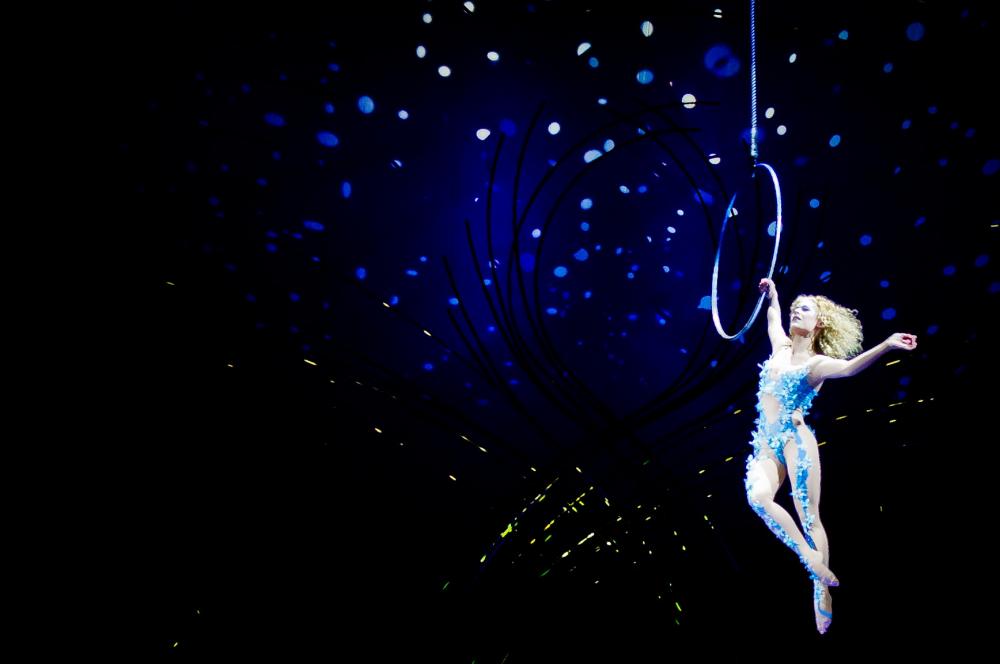It used to be that running away to join the circus didn’t require much more than a free spirit and a reason to leave home. But the rise of Cirque du Soleil over the past two decades has not only radically changed the face of the circus, it’s changed what it takes to join the circus, as well.
With Cirque du Soleil’s Amaluna set to open May 29 in Edmonton, company manager Jamie Reilly offers her insights on how to make it to Cirque’s signature blue-and-yellow big top.
Mind over Muscle
In days gone by, roustabouts weren’t exactly getting paid to think, but with Cirque, crew members are more likely to be hired for their understanding of engineering principles than for brute strength. “When you’re setting up custom-built infrastructure, you need the best people to ensure all goes well,” says Reilly. That includes having requisite paperwork in order. “We need to make sure that we respect building codes in every single city, country, state and province that we go through, around the world. That, in itself, is an extremely thorough process.”
Act the Part
The dramatic, humanist element at the heart of all Cirque shows means acting ability is held in high regard. “When the performers are on stage, they’re not just coming in and doing an acrobatic number and then leaving; they’re being characters,” says Reilly. “They’re part of the entire show, representing storylines of the show, so the acting ability becomes very important, because it’s not just about the movement, it’s about the significance of the movement.”
